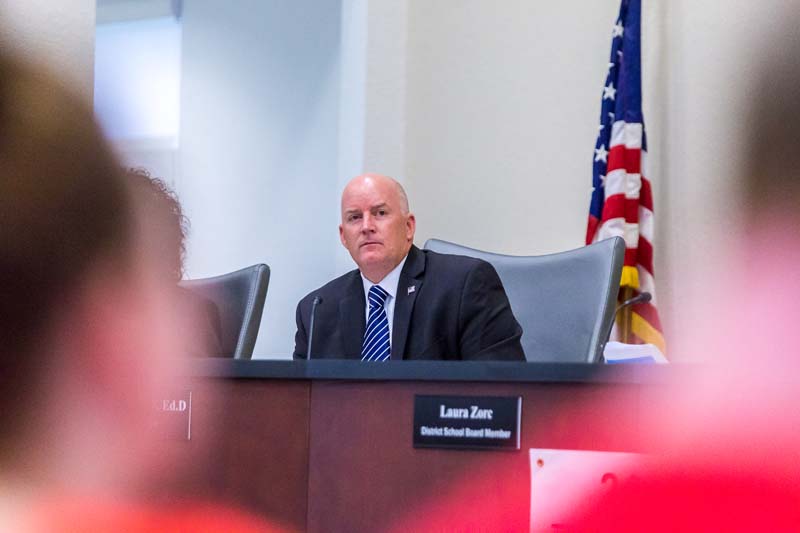School Superintendent Mark Rendell has hired a lawyer and is accusing School Board members of meeting illegally to discuss firing him.
Rendell’s current contract expires June 30, 2020 and the board has until the end of July to decide whether it will extend his term of employment.
Tallahassee-based attorney H.B. Stivers, who represents Rendell, sent a letter dated March 20 notifying the School Board that he has been “retained to advise and assist Dr. Rendell concerning the terms and conditions of his employment with the district.”
“It appears that the terms and conditions of his employment has been a ‘hot topic’ of conversation by board members amongst themselves as well as with third parties,” Stivers wrote in the letter. “During the representation of our client, it will be necessary for us to be included on any and all communications, whether those are directly to us or that we are copied on, that concern or otherwise relate to Dr. Rendell’s employment.”
Board Chairman Laura Zorc denied that the board has met privately or discussed Rendell’s contract privately among themselves – which could be a violation of the state’s Open Meetings Act, commonly called the Sunshine Law.
Zorc placed Stivers’ letter on the agenda for discussion during the board’s March 26 business meeting, which was open to the public.
The issue of Rendell’s upcoming evaluation and contract was broached during a public discussion on March 12, when School Board member Jacqueline Rosario informed other board members that a decision on Rendell’s future with the district needed to be taken by July 31, 2019.
“It was brought to my attention that based on the second amendment to Dr. Rendell’s contract . . . the board may by majority vote [on or before July 31] – decline to employee the superintendent beyond June 2020,” Rosario said.
When other board members asked Rosario if she meant to say that the board needs to decide whether to renew or not renew Rendell’s contract beyond June 30, 2020, she repeated, “The board may by majority vote – decline to employ the superintendent beyond June 2020.”
Two other board members, who asked not to be identified, said after the meeting that they intend to vote against renewing Rendell’s contract.
Rendell, whose annual salary is $163,200, has faced mounting criticism by some board members and residents unhappy with his management style, the district’s financial woes, poor student test scores and low morale among teachers and staff – concerns board members repeated during the March 12 meeting.
Besides hiring an attorney, Rendell appears to be trying to rally any supporters he can find. According to several teachers, Rendell has asked them to write letters of support and submit them to the board. As of March 22, only one letter had been received by the board.
Harvey Lee Jr., a teacher at Vero Beach Elementary, said in his letter to the School Board that Rendell’s impact at the elementary school has been noticeable.
“The best word I could use to describe Vero Beach Elementary when I joined the tribe just over three years ago is ‘traumatized,’” Lee wrote. “There were nine substitutes every day, over 1,000 discipline referrals, and broken relationships between the school and our families.
“Dr. Rendell refused to stand by to let this happen. In the middle of the school year, he changed the administrative team, and the new principal brought me in to help support this transformation.”
Rendell’s tenure has been plagued by numerous controversies, including several audit discrepancies, and an embarrassing investigation by the state Department of Education, which in January threatened to withhold $1.8 million in transportation funds from the school district for inflating the number of kids carried to and from their classes each day by school buses.
Other controversies included Rendell’s disastrous attempt to fire teacher Joe Nathaniel on charges that were refuted in a scathing ruling by Administrative Law Judge John G. Van Laningham; a cheating scandal at Vero Beach High School that resulted in many students who didn’t cheat losing valuable educational certifications; and the exodus of teachers from troubled schools such as Gifford Middle.

